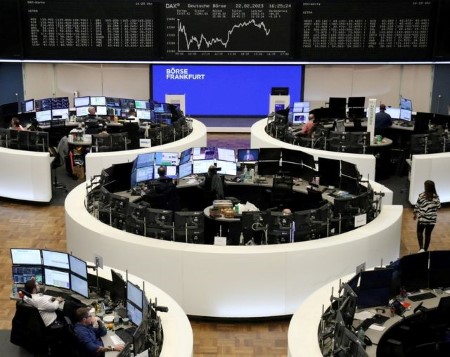




Monthly Economic Update: Fed cuts incoming
 DOWNLOAD
DOWNLOAD

Consensus Pricing – June 2025
 DOWNLOAD
DOWNLOAD

Policy Rate Update: Dovish BSP Narrows IRD
 DOWNLOAD
DOWNLOAD


TOP SEARCHES
Nikkei ends at nearly 3-mth high after Wall Street gains; Fast Retailing shines

TOKYO, March 3 (Reuters) – Japan’s Nikkei index closed at a nearly three-month high on Friday after Wall Street finished higher overnight, with Fast Retailing providing the biggest boost on robust monthly same-store sales at its Uniqlo brand.
The Nikkei rose 1.56% to close at 27,927.47, its highest level since December 15, and marked the sharpest daily gain since January 18. The index rose 1.73% in the week.
The broader Topix rose 1.25% to 2,019.52, adding 1.57% in the week.
“Gains in Japanese shares are justified because they benefit from a recovery in China’s economy. Chinese tourists to Japan would be a support for Japan’s economy as well,” said Jun Morita, general manager of the research department at Chibagin Asset Management.
“But today’s rise might be too much. And also, Wall Street was too strong overnight. Investors might have been too optimistic about the outlook for US interest rates.”
US stocks rallied on Thursday, as Treasury yields pulled back from earlier highs following comments from Atlanta Federal Reserve President Raphael Bostic about his favored “slow and steady” path of interest rate hikes for the central bank.
The benchmark US 10-year yields were above 4% overnight, with Japan’s 10-year government bond yield crossing the Bank of Japan’s policy band earlier in the session.
Fast Retailing lifted the Nikkei by 107.83 points with a 3.87% jump after the company posted a 21% jump in February same-store sales at its Uniqlo brand compared with a year earlier.
Drugmaker Daiichi Sankyo rose 5.13% and silicon wafer maker Shin-Etsu Chemical gained 3.01%.
All but three of the 33 industry sub-indexes on the Tokyo Stock Exchange advanced, with precision instruments leading gains with a 2.55% rise.
The wholesales index jumped 2.4%, with Mitsui & Co and Mitsubishi Corp rising 4.13% and 2.38%, respectively.
Drug maker Otsuka Holdings lost 4.25% to become the worst performer on the Nikkei while the insurance sector lost 0.32% and was the worst performer among the industry groups.
(Reporting by Junko Fujita; Editing by Subhranshu Sahu and Janane Venkatraman)
This article originally appeared on reuters.com





 By Reuters
By Reuters